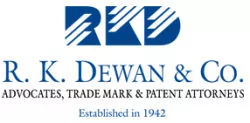Patent laws grant the patent holder with an absolute right to exploit the patent in any manner as it may deem fit, subject to certain limitations. The principle of exhaustion comes into play once the patent holder sells the patented product; after such first sale, the patent holder cannot restrain the purchaser from further selling such product. In the case of Lexmark International Inc v Impression Products, Inc, Lexmark (Plaintiff) had patent for the ink cartridges for its printers. The Plaintiff was selling two cartridges (1) Discounted cartridges, sold in the U.S., which restricted the resale rights of the purchasers; and (2) Cartridges sold abroad without any discount and no restriction on resale. The Defendant purchased the used cartridges of the Plaintiff Company and resold them in the U.S. The Plaintiff filed a suit for patent infringement against the Defendant. The Defendant argued that the Plaintiff was estopped from claiming infringement because it had exhausted its right to regulate the sale of the product after making a 'legitimate' first sale in the U.S. Furthermore, the Defendant claimed that by selling its product abroad, the Plaintiff had also exhausted its rights in the U.S.; the Defendant cited few copyright related cases to support its claims. The District Court, agreed with Defendant's contention of exhaustion of rights by sale in the U.S. however, the second argument pertaining to exhaustion of rights in the U.S. by sale abroad was rejected. The matter was appealed before the Federal Circuit Court.
The Appellate Court upon hearing the two parties, the Government representatives and amicus curiae for the matter, concluded that the Plaintiff was correct in claiming patent infringement. It was ruled that the patent holder had the right to impose limitations on resale and reuse. It was further held that patent rights are territorial in nature and if an article patented in the U.S. is sold abroad without any restrictions imposed on resale and/or reuse, it would not result in exhaustion of patent rights in the U.S. The Court observed that cases of copyright exhaustion were not applicable to patents because of differences in the statutory provisions. This ruling broadens the rights of patent owners in the sense that they can regulate the resale and reuse of their patented article, also this decision does not discriminate between practicing and non-practicing entities (NPE's). While this decision benefits patent holders, it also gives the patent trolls more opportunity to bring frivolous suits. It will be interesting to see the impact of this decision on the U.S. patent system.
The content of this article is intended to provide a general guide to the subject matter. Specialist advice should be sought about your specific circumstances.

